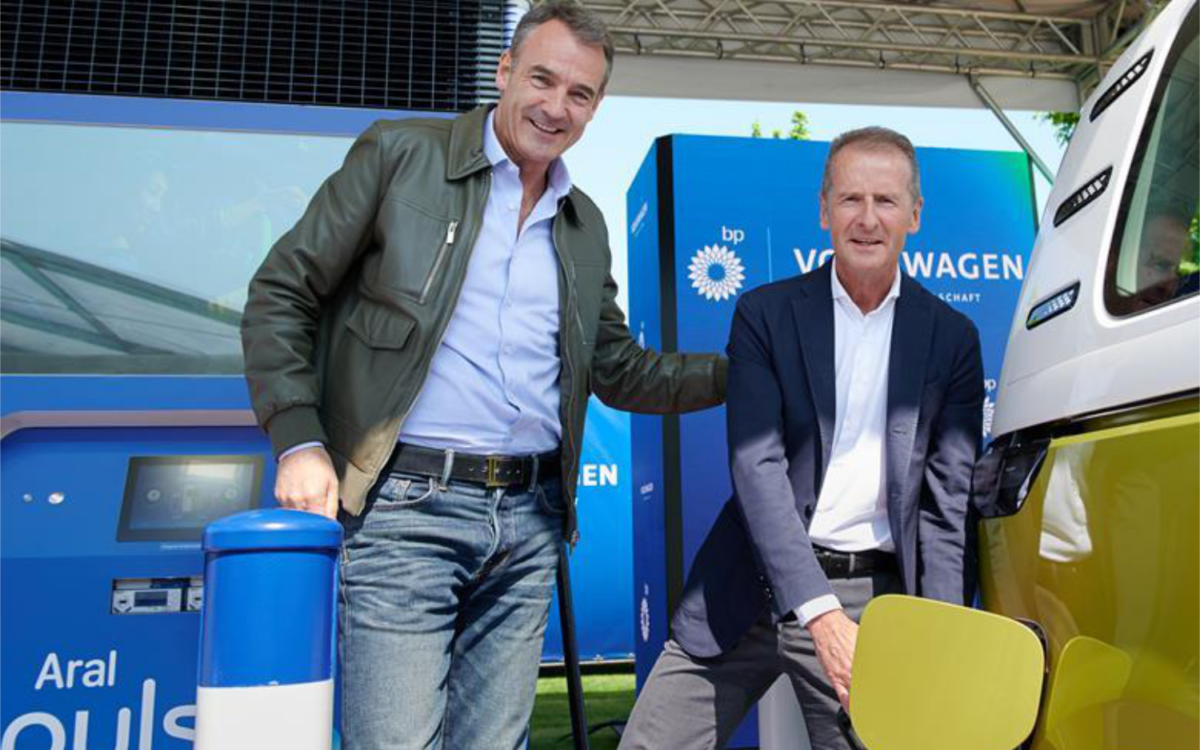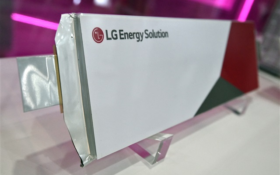The very fast roll-out of electric vehicle (EV) charge points across Europe that run on batteries has meant that safety has taken a back seat. There is little or no consideration given to the risk posed by chargers using lithium-ion batteries that may go into thermal runaway in a facility filled with petrol (gasoline), a safety consultant has claimed.
Car maker Volkswagen and energy company BP announced in April that they were building a fast charging network of 8,000 charge points in Germany, UK and other European countries by 2024.
Safety consultant Graeme Warnell of EV-Exbox, told BEST: “The deployment of more and more battery storage systems on petrol filling stations and EV hubs creates a new set of challenges for fire suppression and firewater management.” Assessing risks of lithium-ion battery fires is one of his areas of expertise. He has previously worked on health and safety in the oil and gas industry.
“An EV battery fire is a high intensity event which is difficult to suppress and control. Initially the main safety concern was regarding thermal runaway in EV batteries within customers’ vehicles. As we deploy more batteries on site for storage the risk footprint for thermal runaway increases,” he said.
Considering the UK and EU’s EV charging infrastructure, there has been little consideration for how a fire could be suppressed or the firewater controlled, he said.
“There is a clear lack of understanding within property management teams, local authorities and operators with regards to the dynamics of a lithium-ion battery fire on many of the sites I have seen. Public safety has been compromised in many areas and thought to how quickly these fires can spread has not been taken into account.”
The BP/VW system uses Volkswagen’s Flexpole 150kW charging units powered by an integrated lithium-ion battery storage system connected to a low voltage grid. This eliminates the need for building dedicated substations. Fast charging includes rapid charging at ≥50kW and ultra-fast charging at ≥150k.
Energy company Shell said last month that by 2030, it aims to have 100,000 public EV charge points across the UK. And 11,000 of these will be rapid chargers at locations including charging hubs, forecourts, supermarkets and other destinations.
Warnell raised the question of safety at a recent regional forum of the Association for Petroleum & Explosives. “I said that if the petrol station is not 24 hours, then the chargers cannot be used by the public. However, will the batteries in the chargers be charging from the grid 24 hours? No-one had considered the potential for a battery fire within the charger at night on an unmanned facility filled with petrol.”
Both BP and Shell were contacted for comment. BP did not respond. Shell replied but declined to comment.
Charge UK, which represents the companies installing and operating the charge points, said the average number of new chargers installed per month in the UK in 2023 to May increased by 75% compared to the same period in 2022. More than 2,000 new chargers were installed in both March and April taking the total past 42,000.
Photo: BP CEO Bernard Looney (left) and VW CEO Herbert Diess












